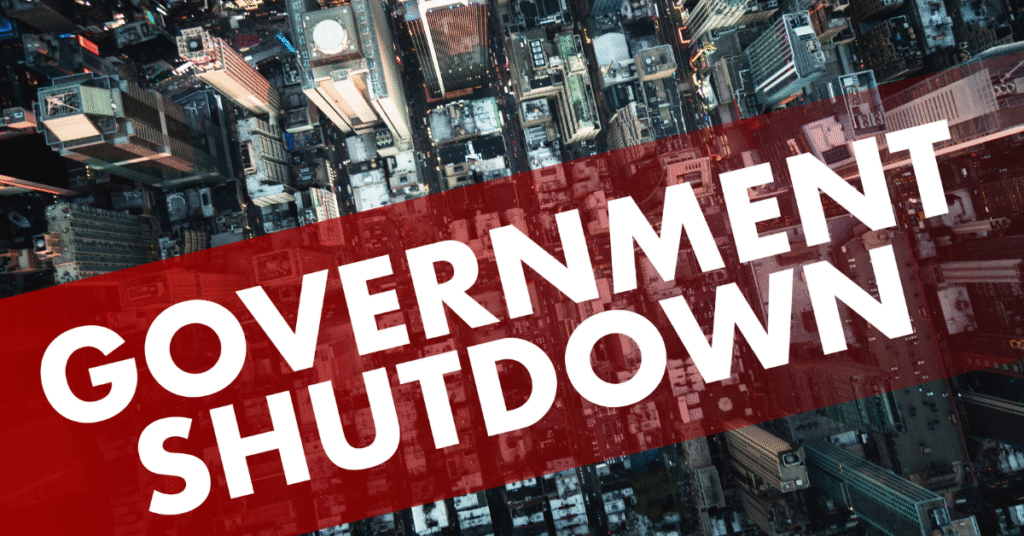Key Points:
- Introduction
- Why the Language Industry Depends on Government Activity
- How Government Shutdowns Disrupt Translation Work
- Impact on Interpreters During a Government Shutdown
- Financial Strain on Language Service Providers
- How Shutdowns Affect Public Access to Multilingual Information
- The Government Shutdown as a Global Communication Issue
- How the Language Industry Adapts During Shutdowns
Table of Contents
Introduction
A government shutdown affects far more than federal employees. It disrupts entire industries that depend on federal operations, and one of the most affected yet least discussed sectors is the language industry. Translators, interpreters, and language service providers play an essential role in supporting government communication, legal processes, public health messaging, immigration services, and international coordination. When funding stops and agencies pause operations, the impact becomes immediate and far-reaching. Projects freeze, payments get delayed, multilingual services slow down, and communities that depend on face communication barriers. Understanding how a govt shutdown influences the language industry helps highlight its importance and the need for consistent language access, even during periods of political uncertainty.
Why the Language Industry Depends on Government Activity

The U.S. government is one of the largest and most consistent users of translation and interpreting services. Federal agencies rely on multilingual communication for a wide range of responsibilities, including legal documentation, immigration processing, education and public health programs, emergency preparedness, defense communication, and international diplomacy. Many of these services are required by law, especially those connected to civil rights and language access. Because of this high demand, government projects form a major portion of the workload for translators, interpreters, and language service providers. When a shutdown occurs and agencies pause operations, the flow of multilingual tasks stops immediately. New translations cannot be requested, ongoing projects cannot be approved, and scheduled work often remains frozen until funding is restored. This heavy dependence makes the language industry extremely sensitive to federal budget decisions and shutdown timelines, showing how closely connected public services are to professional language support.
How Government Shutdowns Disrupt Translation Work
One major consequence of a government shutdown is the immediate halt of translation projects. Agencies often freeze ongoing assignments, delay approvals, and even postpone scheduled releases of multilingual materials. Translation work connected to public health communication, immigration instructions, tax guidance, grants, or international reports may sit on hold for weeks. Because many contracts require official approval at every stage, even completed work cannot move forward during a shutdown. This creates backlogs that agencies must rush to complete once funding resumes, placing additional pressure on translators to meet tight deadlines later. For companies that rely heavily on government translation volumes, these pauses disrupt workflow planning, staffing, and revenue stability.
Impact on Interpreters During a Government Shutdown
Here are the bullet points you requested for this section:
- Court interpreters often lose assignments as federal hearings get delayed or rescheduled.
- Immigration interpreters face halted asylum interviews, naturalization appointments, and ICE-related proceedings.
- Freelance interpreters contracted per session may experience sudden income loss.
- Federal hospitals and agencies may reduce non-emergency appointments, cutting the need for interpreters.
- Conference interpreters hired for government events see immediate cancellations.
- Interpreters working with federal law enforcement may be placed on standby without pay.
- Emergency interpretations may still continue but at reduced volume.
Shutdowns hit interpreters harder than translators because their work depends heavily on scheduled events, in-person sessions, legal proceedings, and interviews — all of which are paused when the government stalls.
Financial Strain on Language Service Providers
A government shutdown creates immediate financial challenges for language service providers. Federal contracts make up a major portion of revenue for many LSPs, and the sudden loss or delay of this work can affect payroll, operation costs, and long-term planning. Payments for completed translation projects may be delayed because no federal employee is available to process them. New contract awards, renewals, and modifications are also paused during the shutdown. Smaller agencies in the language industry feel this pressure even more strongly, as they rely on consistent cash flow to pay translators and interpreters who are already working on tight timelines.
Effects on Freelance Translators and Interpreters
Freelancers in the language industry face some of the hardest financial consequences during a government shutdown. Many linguists depend on recurring assignments from federal agencies such as immigration courts, health departments, education programs, and legal services. When the government stops operating, these assignments disappear instantly. Freelancers cannot rely on back pay, and the private sector cannot always offer immediate alternative work. For linguists who specialize mainly in government-related translation or interpreting, the shutdown creates sudden income instability and uncertainty, especially when shutdowns last several weeks.
How Shutdowns Affect Public Access to Multilingual Information
One of the most serious consequences of a government shutdown is the delay in public access to multilingual information. Federal agencies are responsible for sharing timely updates in multiple languages, covering areas such as public health, safety alerts, legal rights, benefits, immigration procedures, and community programs. When translation teams cannot work, multilingual communication slows down or becomes temporarily unavailable. Non-English-speaking communities may not receive important updates on time, leading to confusion or misinformation. In emergency situations, these delays can even put individuals at risk. A govt shutdown therefore poses not only operational challenges but also equity concerns, especially for vulnerable populations.
Long-Term Backlogs After the Shutdown Ends
Even after government operations resume, the language industry continues to feel the effects. Agencies are faced with heavy backlogs of untranslated documents, delayed hearings, and pending multilingual requests. This sudden increase in demand puts pressure on translators and interpreters to produce high-quality work at a faster pace, sometimes with shortened deadlines. Rush work can strain resources, reduce quality control time, and increase stress on linguists. Additionally, agencies must reallocate budgets to catch up on delayed projects, sometimes resulting in reduced translation volumes later in the year.
The Government Shutdown as a Global Communication Issue

Government shutdowns do not only disrupt domestic translation services; they also have significant implications for U.S. communication with international partners. Multilingual work is crucial for diplomacy, global reporting, cross-border cooperation, and international security operations. When a shutdown halts translation projects tied to global affairs, it slows the government’s ability to communicate effectively and coordinate internationally. Critical activities, such as treaty negotiations, foreign policy briefings, multilingual reports, and collaborations with allied nations, can all experience delays. These interruptions may reduce transparency, hinder timely decision-making, and affect the U.S.’s standing in global cooperation efforts, showing that language services are essential not just locally, but also on the international stage.
How the Language Industry Adapts During Shutdowns
Here are the bullet points you requested for this section:
- Many LSPs shift focus to private-sector clients to maintain revenue flow.
- Freelancers diversify by accepting commercial, medical, or marketing-based language projects.
- Agencies create temporary plans to manage project delays and prepare for post-shutdown surge.
- Some providers use downtime for training, certification, or upgrading translation tools.
- Interpreters may join state-level or local assignments to fill income gaps.
- Companies strengthen relationships with non-government clients to reduce future risk.
- Industry associations advocate for better pay protection and contract stability for linguists.
Adaptation is essential, but the pressure of uncertainty still lingers throughout the industry.
FAQs
Q1: Why does a government shutdown affect the language industry so severely?
A1: Because many translation and interpretation projects come directly from federal agencies, and when these agencies freeze operations, language services stop as well.
Q2: Do translators get paid for work completed before the shutdown?
A2: Often payment is delayed until the government reopens, causing financial strain for freelancers and LSPs.
Q3: Which language professionals are affected the most?
A3: Court interpreters, immigration interpreters, and federally contracted translators experience the biggest immediate impact.
Q4: Does the demand for language services return after a shutdown?
A4: Yes, but usually in the form of heavy backlogs with tight deadlines.
Q5: How can LSPs prepare for future shutdowns?
A5: Diversifying clients, maintaining financial reserves, and strengthening private-sector relationships can reduce the risk.
Conclusion
The impact of a government shutdown on the language industry is deeper than many realize. Translators, interpreters, and language service providers play a critical role in ensuring clear public communication and accessibility for millions of people. When shutdowns interrupt this work, the consequences extend to finances, workflow, public access to information, and even international cooperation. The language industry depends significantly on consistent government operations, and shutdowns reveal just how essential multilingual communication is to the functioning of public services. Understanding these impacts highlights the value of supporting language access at all times, even during government pauses, to ensure that communities, agencies, and linguists are not left behind.
Call to Action for Translation Excellence
If your organization needs clear, reliable, and culturally accurate multilingual communication during uncertain times, Translation Excellence is here to help. Our team of professional linguists provides high-quality translation and interpreting services that maintain clarity, accuracy, and accessibility, no matter how complex the situation becomes. Connect with us today to support your communication needs with trusted expertise.
Related: How to Evaluate a Language Service Provider: Key Questions to Ask Before You Commit
Related: How Certified Translation Services Boost Global Business Expansion


